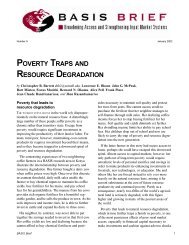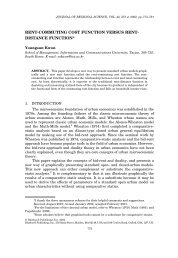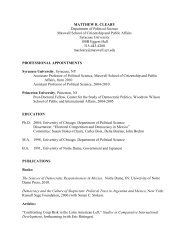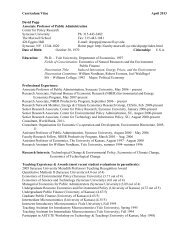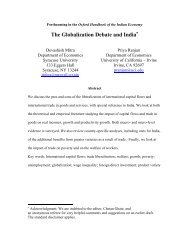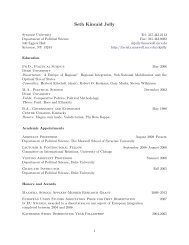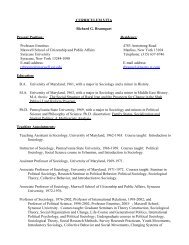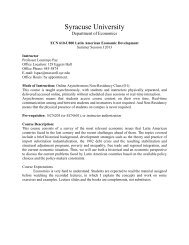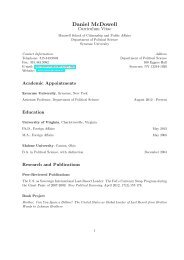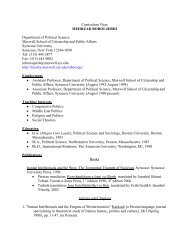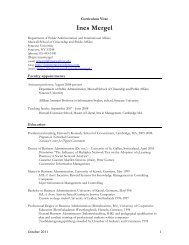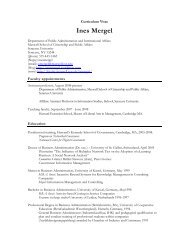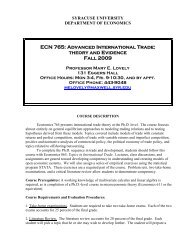The Anbar Awakening - Syracuse University
The Anbar Awakening - Syracuse University
The Anbar Awakening - Syracuse University
Create successful ePaper yourself
Turn your PDF publications into a flip-book with our unique Google optimized e-Paper software.
Downloaded By: [<strong>Syracuse</strong> <strong>University</strong>] At: 18:08 28 August 2008<br />
<strong>The</strong> <strong>Anbar</strong> <strong>Awakening</strong> | 87<br />
tribes may therefore be made ‘an offer they can’t refuse’. Like Rashid Dostum<br />
in Afghanistan, they could readily conclude that switching sides was in their<br />
best interest. This would be a particularly bad outcome for the coalition as<br />
it would have helped train, equip and sustain forces that would then begin<br />
to work against it. For the United States, this would mean <strong>Anbar</strong> and other<br />
regions would become havens for al-Qaeda as it worked to destabilise the<br />
region and possibly support attacks further afield. For the government of<br />
Iraq, it would mean de facto partition, civil war, or both.<br />
Finally, it is not clear that the present internal-security model can be<br />
expanded to the Shia south. <strong>The</strong> power of the tribes dwindled more in the face<br />
of modernisation among the Shia than it did among the Sunni. <strong>The</strong> tribe was<br />
replaced or at least modified by the power of political Islam, so that in Shia<br />
areas political-religious parties or groups tend to dominate. 77 <strong>The</strong> largest at<br />
present are Moqtada al-Sadr’s Office of the Martyr Sadr and affiliated militia<br />
Jaiysh al-Mahdi; and Abdul Aziz al-Hakim’s Supreme Iraqi Islamic Council<br />
and affiliated militia, the Badr Organisation. However, there are numerous<br />
other groups with affiliated militias including the Fadhila Party and several<br />
smaller organisations. While tribal groups are not wholly absent, they lack<br />
the power and organisation of these religious-political groups. In Basra, for<br />
example, armed tribesmen play a role in the fighting but the major factions are<br />
party militias. 78 So even if the United States’ tribal strategy succeeds in the Sunni<br />
centre and west of Iraq, the Shia south would likely remain problematic.<br />
* * *<br />
Fully embracing a tribal strategy for internal security in <strong>Anbar</strong> has been<br />
successful to date and expansion of this strategy over the rest of Iraq could<br />
provide real short-term security gains in at least some areas. <strong>The</strong>re is little<br />
guarantee that these gains will persist, however, and there is some chance<br />
that the strategy will backfire in the medium term. Even Saddam Hussein<br />
had difficulty managing Iraq’s tribes despite his totalitarian state and lavish<br />
patronage. As the United States prepares to reduce its commitment to Iraq,<br />
it should be clear on both the tension in its strategic goals and the potential<br />
for the tribes to once again switch sides.



